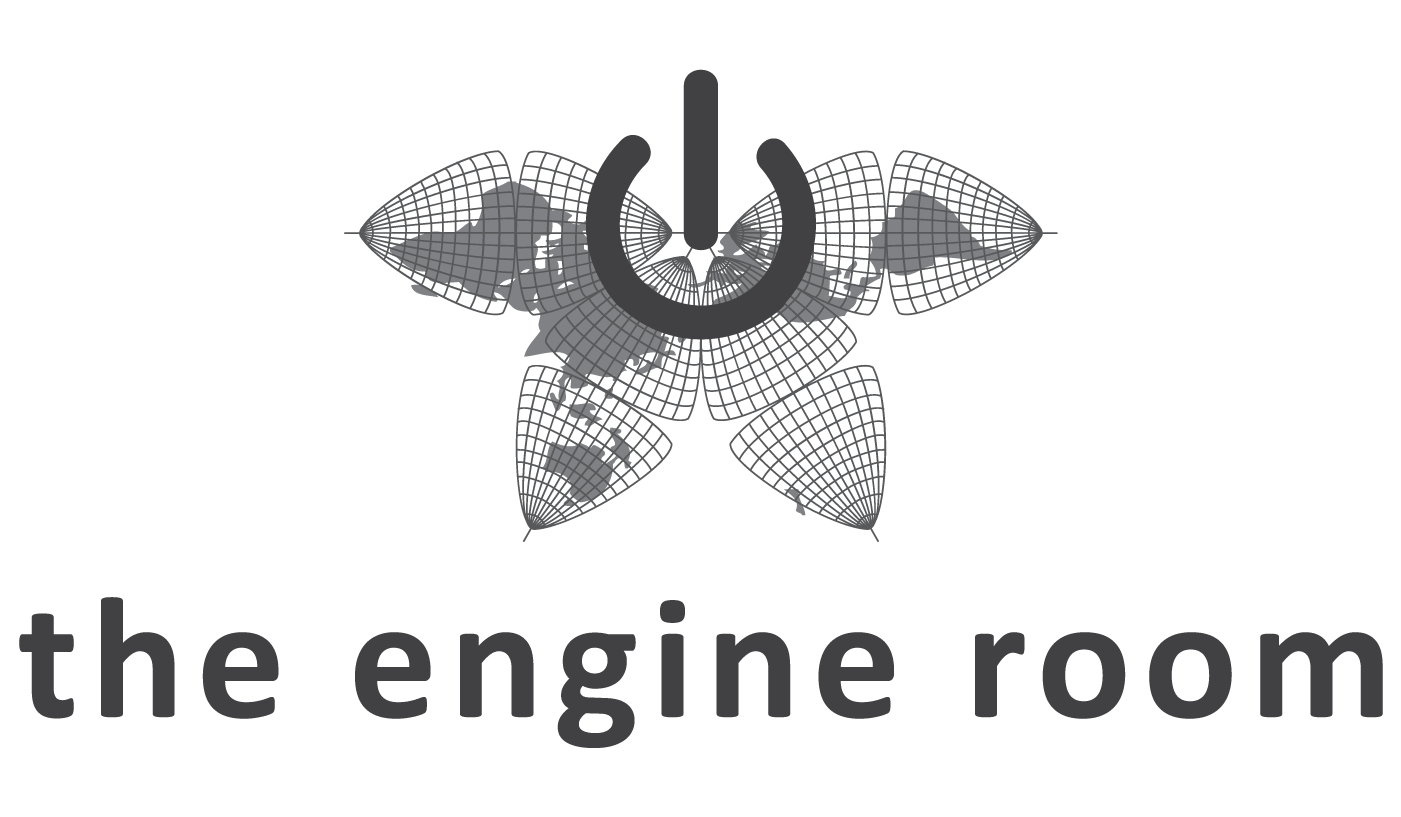
2015 Retrospective
who we are
We are a team of 12 strategists, researchers, technologists, and advocates based in 9 countries. The internet is our office. We forge partnerships with social change organizations and work with them to tactically and strategically adopt technology to further their social justice objectives. We work to make a tangible and positive difference for our partners while producing reusable documentation and resources to make a positive difference for other organizations that we do not directly support.
our mission
The engine room exists to accelerate positive social change. We do this by supporting social change initiatives to effectively use technology and data in their work.
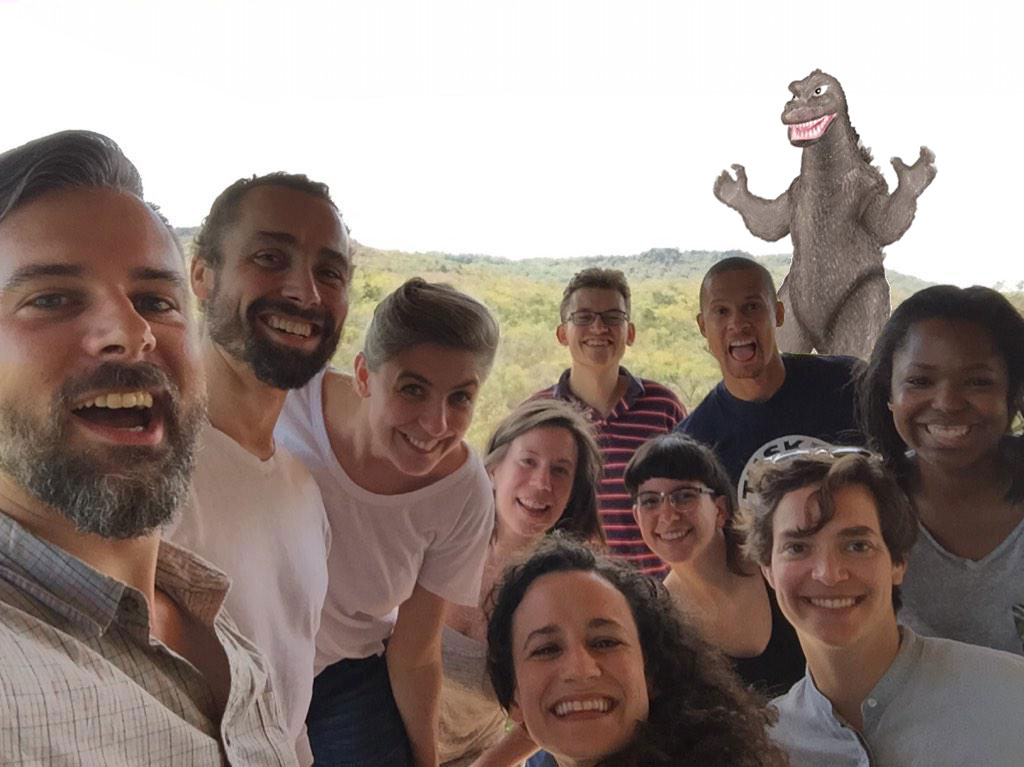
We define positive social change as shifts in society that promote equality, access to justice, exercise of rights, good governance, and accountability. We believe that because we are untethered from a particular social change sector we are better able to circulate effective strategies, provide demand-driven support, and bring fresh ideas and approaches that can have a big impact.
2015 milestones
![]()
Scroll through to learn more about our programmatic activities, research, network of allies and events in 2015.
our main programs
You’ll find threads of our two major programs running through much of our work - we try to engage in long-term direct support as a general rule, and we also try to integrate responsible data thinking into all of our partnerships, projects, and research.

Responsible Data Program
Our Responsible Data Program is focused on making it easier for advocacy organizations to use data responsibly. Part of the Responsible Data Program, the Responsible Data Forum convenes activists, advocates, security thinkers, researchers and technology doers, for learning and building sprints. We’ve had a few significant developments in the past year, including: hiring of a Responsible Data Program Manager (Danna Ingleton) and a re-conceptualization of program delivery.
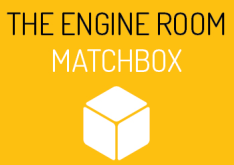
Matchbox Program
Our Matchbox Program is built to match high impact advocacy projects with the network of technical and strategic expertise they need to build effective technology that powers their work. In the course of 2015, we engaged with over 30 organizations to provide light-touch strategic advice, and with 6 partners to provide in-depth technical and strategic support in concentrated periods (ranging from 6 to 12 months).
what we did this year
Direct Support
Our direct support to partners is a critical part of our work. It creates impact and it keeps us connected to the real world problems organizations are facing so we can better target our research and programmatic activities.
Responsible Data Program

OXFAM - We worked with OXFAM as they developed and launched their updated responsible data institutional policy. This direct support involved reviewing and commenting on drafts, making helpful connections within the community and being available to discuss thorny areas of the policy.
Shelter Me - We’re working with Shelter Me, a project developing an SMS phone tree for Indonesian migrant domestic workers in the Gulf Region. We facilitated a half day session with the funder and project partners to unpack responsible data issues related to this phone tree, and to develop mitigation strategies. Of particular interest is that we used a responsible data framework to plan out the project, rather than attempting to shoehorn responsible data into an existing project plan.

Medecins Sans Frontieres - We are embarking on a project with Medecins Sans Frontieres to review and update their data sharing policies and implementation tools. The importance of this work lies in the intrinsic value of opening medical data and data from field research to support humanitarian interventions and medical research, studies, publications and ultimately service delivery.

Amnesty International - We are working with Amnesty International and Benetech to spearhead a community discussion on responsible data issues related to human rights documentation. We will develop a helpful resource to both bring consistency in present responses and to ensure that human rights practitioners are well positioned to proactively address responsible data issues as they emerge.
Other responsible data work with Amnesty International included leading a responsible data and program design workshop for Amnesty International to help them prepare for their Alt-Click microtasking project.

Mercy Corps - We have worked with Mercy Corps to develop tip sheets for RD issues related to e-transfers. We are initially drafting 2 tip sheets (on Encryption and Data Minimization) and will hopefully be contributing to the development of a broader Data Starter Kit for humanitarian field staff working on e-transfer programmes.
Matchbox Partners

Fundacion Directorio Legislativo (Argentina) - We supported Fundacion Directorio Legislativo to develop project plans, user interface design, and data models for a website to show changes made to bills and the parliamentarians who promoted these changes. We wrote about this work here. Fundacion Directorio Legislativo is an organization that uses dialogue, transparency and access to public information to promote democracy and a stronger parliament.

¿Quién Compró? (Mexico) - We facilitated the development of a microtasking site so that ¿Quién Compró? - a network of investigative reporters - can independently verify and analyze what public money is being spent on in Mexico. We wrote about the process of creating a microtasking site, and digitizing documents.

Research and Advocacy Unit (Zimbabwe) - We helped RAU, a research organization focusing on issues related to women, displacements and governance, with its use of technology within its governance program. During our Matchbox partnership, we to set up a citizen reporting platform using FrontlineSMS to collect citizen voices on MPs’ participation in parliament, and captured and recorded this information in a database, linking the database to individual MP profiles and a public interface for dissemination. We wrote about it here.
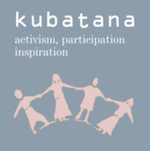
Kubatana (Zimbabwe) - We helped Kubatana develop a tool to collect and categorize citizen reports on water availability throughout Harare. Kubatana is a civic human rights information and advocacy organization that provides and makes accessible online a range of human rights and public interest documents. We wrote about our experience using WhatsApp for this project here.

Institute for Public Policy Research (Namibia) - We are providing support in the mapping of information related to the allocation of Petroleum Exploration Licenses in the country in an effort to increase transparency in the sector. Part of our support also included the development of an online platform that includes data visualizations where the public can view raw data and basic analysis of trends in the licensing process. IPPR is a research organization that delivers independent, analytical, critical and constructive research into social, political and economic issues affecting development in Namibia.

Ndifuna Ukwazi (South Africa) - Matchbox helped NU build a platform that monitors the accessibility of municipalities’ service delivery agreement contracts and other public information, and compares municipalities’ compliance on FOI laws against each other. NU is a team of advocates based in Cape Town, South Africa. They use research and strategic litigation to campaign for justice and equality in poor and working class communities. We wrote about it here [LINK MISSING}. The website we helped build is available here.
other project-based, holistic, strategic and technical support
Our direct support to partners is a critical part of our work. It creates impact and it keeps us connected to the real world problems organizations are facing so we can better target our research and programmatic activities. Our direct support activities can be grouped according to two main types: project-based, holistic strategic and technical support, and supporting partners to design engagement with their communities in workshops.
Amnesty International - The engine room team has been working with Amnesty International for three years on a variety of projects. In 2015, we finalized our work to support their redesign of the in-house human rights defender database, Alix joined AI’s new Technology and Human Rights Advisory Group, and we have begun program design support on several new initiatives including Alt Click.
Alt Click - Amnesty International has recently started a program to leverage volunteer microtasking to support their human rights documentation and research processes. To support Amnesty in the design phase of Alt Click, we researched existing microtasking initiatives and technology providers to develop a set of recommendations and background information on the state of the art in microtasking; we also facilitated a program design sprint to support the development of a clear pilot case for Alt Click. We will continue working with the Alt Click team to support them as they work to use new tools to enrich their volunteer engagement and expand their research capabilities.

Panic Button - We worked with Amnesty International and media activist Mushon Zer-Aviv to create the Panic Button Training Kit (PACT), a collection of training tools for human rights defenders at risk. We wrote about this work here.

SumofUs - The engine room team works with SumofUs, the campaigning organization, to improve its team security practices. Moving beyond technical fixes and end-user tool trainings, we’ve been working with SumofUs to develop organization-wide behavior change that powers the organization’s mission of holding corporations accountable to citizens.

Rainforest Foundation - We have continued our work with the Rainforest Foundation of Norway to support their partners in developing strategic skills for adopting data and technology in national-level advocacy to protect forests and individuals’ rights. We produced an introduction to using technology tools such as drones, satellite mapping and mobile data collection (to be published in early 2016), and conducted research on how advocacy organizations can produce data that socially responsible investors could use to influence companies’ activities. The Rainforest Foundation supports programs that cover a range of issues from protection of civil and political rights of indigenous and tribal peoples, to the promotion and defense of their social, economic and cultural rights.

DataShift - The engine room has continued its work with CIVICUS on the DataShift initiative. The engine room team has been supporting in: design and implementation of targeted support to organizations collecting and using citizen-generated data in four pilot countries (Argentina, Nepal, Tanzania, and Kenya), research on the impact that citizen-generated data projects can have, and creating reusable resources on how to successfully develop citizen-generated data projects that can have real impact at national and international levels. CIVICUS is an international alliance dedicated to strengthening citizen action and civil society around the world.

Restart Project - We developed a platform for the Restart Project to provide visual information about the impact that Restart Parties have on the amount of e-waste participants produce. This work is intended to connect monitoring and evaluation approaches with data-informed, visual advocacy tools.
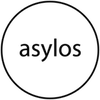
Asylos - Last year, we supported Asylos to develop its new data sharing tool for the decentralized research team that powers its support to refugees. This year we helped design and facilitate Asylos’ all-network event in Berlin. We supported them to incorporate diverse topics ranging from creative campaigning techniques (featuring Peng!), creative research techniques (featuring the Transparency Toolkit), Asylum Law 101 (featuring the Refugee Law Clinic of Munich), and other sessions on country of origin information standards, responsible data and information security.

LevelUp - We’re working with the LevelUp team at Internews to overhaul their platform and improve mechanisms for contribution and localization. LevelUp is a resource for training of trainers (ToT) and supports individuals and groups providing digital security trainings worldwide.

Code for Pakistan - We worked with Code for Pakistan to improve volunteer engagement and onboarding; better manage organizational information; and use tools and techniques to more effectively manage roadmaps, goals, and day-to-day work between an international, distributed team. Code for Pakistan is a technology focused non-profit building a non-partisan civic innovation ecosystem to improve quality of life across Pakistan.

Data Centar - Data Centar aims to provide a fully functional MVP (minimum viable product) for an open, searchable online platform of financial and administrative data on public officials, at a national and local level in Serbia.
Zimbabwe Peace Project - Brokering Zimbabwe Peace Project website penetration testing (from Cure53, funded by OTF) and migration to Greenhost.
We provided light-touch strategic support in response to requests from 30 organizations through the Matchbox Program and other avenues ranging from questions about designing pilots using SMS feedback mechanisms, facilitating audience research and design of wireframes to inform future web development.
how did we do this?
by bringing people together
In 2015, the engine room has partnered with 6 organizations to host 2 Responsible Data Forum events. We also worked with 5 practitioners with responsible data expertise to host 4 online, peer-to-peer discussions. Here’s a brief summary:
- The RDF on Human Rights Documentation (Manila, March) brought together 30 human rights practitioners and researchers to explore the ethical, privacy and security challenges posed by the use of data and new technologies in human rights documentation. We hosted this event in partnership with: Amnesty International, Benetech, HURIDOCS, and the Center for Social Cultural Rights.
- The Responsible Data Lab for documentary photographers and photojournalists (New York, March) was a 1-day hands-on lab that exposed 30 photographers and photojournalists to approaches for navigating the ethical, privacy and security challenges they face in their work, and in today’s rapidly shifting digital landscape. We hosted this event in partnership with the Magnum Foundation and Open Society Foundations.
- Over 300 practitioners have joined the RDF email discussion list and sent over 100 messages to learn from their peers and share their experiences and knowledge with others in this growing community.
- The RDF online discussion series on de-identifying data engaged over 40 participants in four events. All of these online events produced meaningful resources for the RDF community:
- Our first discussion with Mark Elliot of the UK Anonymisation Network was an introduction to de-identifying data for advocacy organizations.
- Our second discussion with Sara-Jayne Terp of Thoughtworks focused on risk analysis and mitigation strategies.
- Our third discussion featured Max Shron, of Polynumeral, who presented an introduction to k-anonymity and other de-identification frameworks.
- Our fourth discussion was a working session with Amy O’Donnell of Oxfam on developing a data-deposit decision-making framework.
We also played an active role in these responsible data-focused events:
- Responsible Data for Humanitarian Response: maximising benefits and minimizing risks. Netherlands. Held in Feb 24-25, we were happy to support the Dutch Ministry of Foreign Affairs, Leiden University, and other partners. It gave us a great opportunity to connect with many Responsible Data partners and allies, and we were happy to run a session, and we wrote more about it on the blog.
- In Berlin, with Oxfam GB, we coordinated a closed roundtable for organizations developing and implementing organizational responsible data policies. More info on this event is in our blog.
- RDF Balkans, October 15 - in partnership with the Youth Initiative for Human Rights, we organised the first geographic Responsible Data Forum, to build awareness of responsible data issues when using data.
- Big Data for Peace Summer School, which is a Leiden University course for students and professionals interested in understanding ‘big data’ in international peace and justice work.
Another important part of our partner support is designing and leading events that support our partners’ networks, programs, and opportunities for collaboration and capacity development. In 2015, we organized and facilitated many events for close partners to further that work, and played a supportive role in many others.
- The POINT conference (Sarajevo, 20-24 May 2015) was a regional conference of CSOs from across Southeast Europe and international experts, all of whom intensively use technologies in their work. We were there to talk digital security and privacy on the internet, our work with the Matchbox Program, and the Data Academy datathon.
- We actively participated in a 5-day design workshop with the Balkan Data Academy to support the strategic development of a citizen election monitoring project in Bosnia. We wrote about it here.
- We were an organizing partner in the Responsible Data for Humanitarian Response event led by Leiden University’s Peace Informatics Lab and held at the Dutch Ministry of Foreign Affairs
- We facilitated an event for small human rights funders in Scandinavia who are interested in providing more strategic security support for their grantees.
- We co-facilitated a session at Monitoring Evaluation and Learning Technology (MERL Tech) 2015 based on our tool selection research.
- We supported CIVICUS in their organization of events related to the DataShift program at the Cartagena Data Festival.
- We presented at and facilitated two events organised by the UK non-profit network Bond, focusing on responsible data issues in relation to monitoring and evaluation, as well as consent and data usage.
- We co-facilitated a session at Buntwani, which focused on the usage of technology in transparency and accountability.
- As follow up to research we’ve been carrying out with the Transparency and Accountability Initiative on social movements, we facilitated a workshop to bring together experienced social movement practitioners in India to co-create a research agenda for future work.
- We attended the International Anti-Corruption Conference (IACC) in Malaysia and helped out with their Technology Hub. Interested attendees could approach technologists to ask a question, pitch an idea, figure out how to analyse a dataset or simply find out what tools may be available to use for their project. There’s more info about this in our blog.
by matchmaking
We could not have accomplished what we did this year without the support of our worldwide network of allies and organizations. In 2015, our legion of experts spent countless hours designing and developing platforms, resources and strategies for each of our partner’s projects. Other allies are tirelessly working to introduce responsible data practices into their organizations and work with the community to improve existing resources.
Here are some of the best and the brightest who helped support our Matchbox partners this year:
- Julie Lorch designed wireframes for a service delivery agreement website for our partner Ndifuna Ukwazi in South Africa, and IPPR in Namibia. She has also helped us on several other projects this year and has helped us up our UX and UI game.
- Friedrich Lindenberg worked (with our partner the Institute for Public Policy Research) to develop a data model on petroleum exploration licenses awarded by the Namibian government. He also did volunteered to scrape data from a map showing the location of government licenses for oil which has strengthened the overall project.
- Gertrude Nicole Friedman volunteered with one of our partners to help get 50,000 paper receipts in order and digitized. She drew up a great set of recommendations on scanning and storing paper documents. Who knew you could develop presets for a scanner to make bulk scanning more consistent?
- Don Hubert provided in-depth support for data modelling, data collection and was a rich source of information for our partner the Institute for Public Policy Research in Namibia.
- Toby Marsden worked with us to engineer a database of contract data for The Institute for Public Policy Research in Namibia and was able to capture the complex data model for the project effectively.
- Frontline SMS assisted us in setting up 2-way SMS messaging service for a partner that would allow users to report on the conduct of MPs in the Zimbabwean parliament.
- Georges Labreche & Open Data Kosovo continue to work with us and our partner to create a microtasking platform where users can tag data on government spending.
- Code for South Africa developed the website for Ndifuna Ukwazi that ranks municipalities according to their compliance with freedom of information laws.
- Women Hack For Non Profits contributed tremendous volunteer work hours with women in their network to develop the frontend for the IPPR platform. They also built functionality to be able to integrate mapping data from the Namibian mining cadastre.
- The Fair-Play Alliance donated valuable time to advise one of our partners on building up a network of volunteers and has contributed to our learning about microtasking sites.
We also were supported by RDF community leaders who led panels and discussions at events with their networks:
- Tania Lee spoke about RDF on a panel at the Interaction Forum in Chicago.
- Amy O’Donnell of Oxfam gave a number of RDF related presentations at events in the UK and Germany.
- Norman Shamas included a number of RDF topics in various Tech Change courses.
- Jos Berens spoke about responsible data at various open data for peace events.
We plan to continue to investing and growing this network of experts in the coming year.
through research and documentation
Together with the Network Society initiative at the University of the Witwatersrand in South Africa, and Pawa254 in Kenya, we have been working on a research project that aims to understand how voice and accountability initiatives in Kenya and South Africa choose technology tools, and whether targeted information could improve the process. The project is producing a peer-reviewed article, a longer report and an online framework designed to be help organizations choosing a tool think through the process. The research is supported by Making All Voices Count.
The Transparency and Accountability Initiative (T/AI) contracted the engine room to conduct qualitative research on the roles, activities and self-conceptions of social movements in the tech, transparency and accountability field, to understand when and how the international support and funding communities can best support their work for social good. This research culminated in the publishing of three think-pieces, two of which were produced by the engine room team:
- A movements perspective on transparency and accountability, and
- Watering the Grassroots: a strategy for social movement support
In addition to our research projects with MAVC and T/AI, we have also published resources and documentation helpful for our work. Currently, we share our research and project documentation via our blog and our research and resource aggregator The Compiler. We use the Compiler to curate research findings that we think could help advocacy organizations make their day-to-day work more effective.
We also created a resource for those involved in data driven advocacy projects in the context of human rights advocacy, humanitarian action, sustainable development, or peace & justice. We built the Big Data Framework together with the Peace Informatics Lab, Data & Society, the Harvard Humanitarian Initiative, all participants to the Big Data for Peace Summer School in The Hague. By walking through it at the start of a project, we hope that users can draft a more informed data strategy based on the questions provided.
Towards the end of 2014, thanks to a grant written by Hivos we brought together 12 data + international development experts to write a book on the responsible data challenges that come with increased, and new, ways of using data in the development sector. In 2015, we converted this PDF book into a static website and made it annotatable with the handy Hypothes.is plugin, and we carried out some user research to see how our community was using the book. Based on what we found out, we’re now working on improvements and developments to the book - such as chapter summaries and slide decks for responsible data advocates.
by growing our team
In February, we held our first engine room staff retreat in Costa Rica where many of the staff met for the first time.
We also added 4 rock stars to the team:
- Danna Ingleton, our Responsible Data Program Manager
- Julia Keseru, our Global Matchbox Lead
- James Mwanjau, our Finance Manager
- Zara Rahman, our Research Lead
Additionally, we added 3 new board members:
- Brenda Burrell is a Zimbabwean information activist and co-founder of The Kubatana Trust of Zimbabwe.
- Nathaniel Heller is Managing Director at the Results for Development Institute (R4D) and leads its Governance Program.
- Ali G Ravi is currently leading Confabium with a mission to help projects, organizations and foundations integrate digital innovation into their success strategies.
And as a shout out to some of our organizational advisors and allies, this year, we’ve received generous support and guidance from:
- Allen Gunn at Aspiration
- Chris Michael at Collaborations for Change
- Adriana Cracium at Oak Foundation
- Phillip Levine and Justin Jesse from the McDermott Will & Emery law firm
And two people who moved on from the engine room in 2015:
-
Christopher Wilson Since 2011, Christopher led the engine room’s research activities, developed the responsible data program from an ambitious idea into a community of practice, supported our seemingly overnight expansion, and did all of the other million little things it takes to successfully co-found and run an organization with grace under pressure. We want to thank Christopher for all of the late nights, the early morning airport transfers, the bold ideas for bootstrapping the engine room, and the selfless commitment to building something from nothing.
-
Alex McBride Midway through the year our finance manager left us to head into more intense graduate school waters. She really helped us step up our financial management game as we managed fast-paced growth. She’s missed - but is up to great work at the field of environmental justice over at the New School.
through the support of our funders

Hivos – Hivos has supported the engine room’s responsible data work, for the development of a Responsible Data Toolkit, and for our research on reflections of harm. Hivos is an international development organization that develops programs, engages in policy advocacy and researches a variety of topics.

Making All Voices Count (MAVC) – together with the Network Society initiative at the University of the Witwatersrand in South Africa, and Pawa254 in Kenya, we have been working on a research project that aims to understand how voice and accountability initiatives in Kenya and South Africa choose technology tools, and whether targeted information could improve the process. The project is producing a peer-reviewed article, a longer report and an online framework designed to be help organisations choosing a tool think through the process.

William and Flora Hewlett Foundation – The Hewlett Foundation is providing the engine room with funding for the Matchbox Program to grow our offering of support for local organizations in Southern Africa and Latin America working to promote transparency and accountability.

Oak Foundation – Oak Foundation provides the engine room with general support to allow for more responsive support and research for in-country advocacy projects.

Open Society Foundation – OSF’s Information Program supports the Responsible Data Program and provides us with general support for our operations.

Open Knowledge Foundation - OKFN has provided support for specific Matchbox activities in Southern Africa.
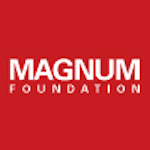
Magnum Foundation - The Magnum Foundation supported an event in New York City titled Responsible Data Lab for documentary photographers and photojournalists.
did you see us this year?
looking forward
![]()
You can find our 2016-2017 strategy here to learn more about the problems we will be tackling in the next 2 years. But remember: our digital door is always open. If you’ve got technology and data problems or opportunities, we’re here to help. And if we don’t have the in-house expertise you need, we will do our best to point you to others in our network of excellent allies who do.